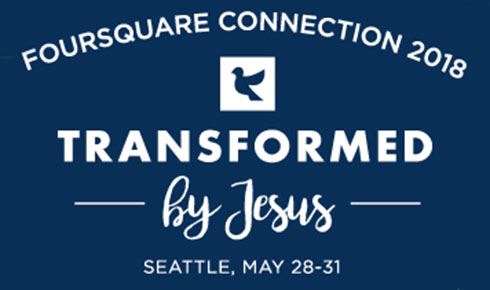
Pentecost is the story of profound empowerment. Through the Spirit, God’s people are empowered for ministry, to do the works of the kingdom, to bring reconciliation and justice to the world. Generally speaking, we connect the Spirit’s work with doing. Pentecostals are doers.
But in this modern time, in a world of do-addicts, I wonder if there is also another side to the Spirit that Pentecostalism can grab on to. I want to suggest one such aspect: how the Spirit empowers us to simply be.
Jesus said no in the Gospels. To many, He was a disappointment: to His family, disciples, hometown, religious folks, crowds, rulers. Consider, for example, how in Matthew 19:16-30 Jesus instructed a rich young man that he must sell everything and give to the poor. Downtrodden, the rich young man walked away, unwilling to meet the demands of discipleship as laid out by Jesus.
The text never suggests that Jesus ran after him, begging that he might reconsider his decision. Jesus did not negotiate with the man, compromising on selling only half the possessions instead. Jesus simply let the man walk away in disappointment. He would not compromise His kingdom for the rich. We find that others said they would follow Jesus after settling family business and burying their dead. Continuing His pattern, Jesus said they were not ready for His kingdom. “Let the dead bury their own dead,” Jesus said (Luke 9:60, NKJV).
For Jesus, discipleship was not a life choice one took after checking off everything on one’s to-do list. Jesus was primary. The to-do list was always secondary.
We see this same principle fleshed out through the Gospels. In Mark 8:11-13, the Pharisees approached Jesus again to ask Him for a sign to prove that He was from heaven. Frustrated by their demands for a miracle, Jesus “sighed deeply,” saying, “Why does this generation ask for a sign? … I say to you, no sign will be given to this generation” (NKJV). Stepping into a boat, He sailed to the other side, never waving His magic miracle wand.
In His death, Jesus could have pulled out a grand finale of the spectacular. Onlookers derided Him with wagging fingers in judgment: “So! You who are going to destroy the temple and build it in three days, come down from the cross and save yourself!” (Mark 15:29-30, NIV). Their words are as cold and callous today as they were then: “He saved others … but He can’t save Himself!” (v. 31).
Jesus heard their words. This was the guy who invented the world. He could have ended the suffering. But He did not. He responded to their mocking words with a no. The decision to drink this cup was His and His alone—no one else’s. Jesus was not a “yes man.” Jesus, Tony Horsfall writes in his book Working From a Place of Rest, “would never allow himself to be ‘bullied’ into doing anything.”

Likewise, the Spirit of Jesus says no. Acts 16 records the instance of Paul approaching Bithynia, a region in modern-day Turkey where the gospel had yet to be proclaimed. The harvest was plentiful. Yet Paul’s missionary venture was soon disrupted: “When they came to the border of Mysia, they tried to enter Bithynia, but the Spirit of Jesus would not allow them to” (Acts 16:7, NIV, emphasis added).
Imagine Paul’s consternation, even anger. Souls hung in the balance. The door of ministry was wide open. And as he was about to go in, the Spirit said no. Not this time. Not here. Not now.
What I think we need to learn to understand is the other side of the Spirit’s empowerment—that we are empowered to rest and stop. Doing is critical. But doing without being is slavery. And Pentecostals could learn something from this side of the Spirit.
As we think about Millennial leaders, we need to teach them the power of both sides of the Spirit—empowerment to do and empowerment to be. I have sought to help pastors, in particular, embody this. In my book The Subversive Sabbath, I argue that this is a legitimate work of the Spirit.
The Spirit rests upon us. Why? So that we can learn to rest in the Spirit. As our Foursquare forebear Roy Hicks Jr. said: “Not every need represents God’s will for your life.”
Watch A.J.’s Video About Sabbath
A.J. will be a keynote speaker at Foursquare Connection 2018 in Seattle, May 28-31.
To see more from Connection 2018, click here.


